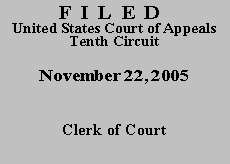

| VICTOR NAJERA-RODRIGUEZ,
Petitioner, v. ALBERTO R. GONZALES, Attorney General,(*) Respondent. |
|
Victor Najera-Rodriguez petitions for review of the Board of Immigration Appeals' (BIA) decision denying his motion to reconsider and his motion to remand. An immigration judge (IJ) denied petitioner's request for cancellation of removal on December 4, 2002 based on petitioner's conviction for domestic violence. Petitioner appealed to the BIA. While the appeal was pending, petitioner filed a motion to remand to allow the IJ to consider the effect of an August 2003 order setting aside his conviction for domestic violence. On June 2, 2004, the BIA affirmed the denial of cancellation of removal and denied the motion to remand. Petitioner did not seek review of that decision in this court; instead, on July 1, 2004, petitioner filed a motion to reconsider and a second motion to remand with the BIA. The BIA denied both the motion to reconsider and the second motion to remand on October 5, 2004 and petitioner appealed from that order.(1) We affirm.
Petitioner contends that the BIA committed reversible error in finding that petitioner did not establish eligibility to remand his case to the IJ based on changed circumstances surrounding his criminal conviction. This contention, however, was the basis for petitioner's first motion to remand. In its June 2, 2004 order, the BIA denied petitioner's request to remand to present evidence that his conviction had been set aside. Because petitioner did not seek review of that decision, we lack jurisdiction to review it. See Infanzon v. Ashcroft, 386 F.3d 1359, 1361 (10th Cir. 2004) (noting lack of jurisdiction where petitioner failed to timely petition from BIA's order).
In his motion to reconsider and his second motion to remand, petitioner sought relief solely on the basis of his alleged membership in the Catholic Social Services (CSS) litigation. As part of the settlement of the CSS litigation, eligible aliens were permitted to apply for legalization as Special Agricultural Workers during a reopened application period. Petitioner argued that he was eligible to pursue temporary resident status because the CSS litigation formed an independent basis for relief for those class members. Petitioner did not, however, renew his argument concerning the BIA's previous denial of his first request to remand. See Admin. R. at 16. The BIA's denial of this second motion is the only order subject to our review.
Petitioner asserts that the BIA erred in its decision not to remand to the IJ so that he could present evidence of his membership in the CSS class action. To be entitled to a motion to reopen,(2) petitioner must "state the new facts that will be proven at a hearing to be held if the motion is granted." 8 C.F.R. § 1003.2(c)(1). The motion will not be granted "unless it appears to the Board that evidence sought to be offered is material and was not available and could not have been discovered or presented at the former hearing." Id. In his motion, petitioner simply asserts that he is a CSS class member and attaches a copy of his CSS worksheet. As the BIA noted in its decision, this evidence is not new. Admin R. at 2. Rather, the evidence is cumulative of what was in the record at the time of the BIA's June 2, 2004 order affirming the IJ's decision. Id. at 2 (explaining that the denial in 1994 of petitioner's application for CSS membership was an exhibit in the administrative record during petitioner's first appeal to the BIA). Accordingly, petitioner has not demonstrated that the BIA abused its discretion in denying his motion. See Tang v. Ashcroft, 354 F.3d 1192, 1194 (10th Cir. 2003).
The decision of the BIA is affirmed.
Entered for the Court
Circuit Judge
*. On February 4, 2005, Alberto R. Gonzales became the United States Attorney General. In accordance with Rule 43(c)(2) of the Federal Rules of Appellate Procedure. Mr. Gonzales is substituted for John Ashcroft as the Respondent in this action.
2. This order and judgment is not binding precedent, except under the doctrines of law of the case, res judicata, and collateral estoppel. The court generally disfavors the citation of orders and judgments; nevertheless, an order and judgment may be cited under the terms and conditions of 10th Cir. R. 36.3.
1. The government filed a motion to dismiss this petition for review arguing that it is untimely because it was filed on the thirty-first day after the BIA's decision, November 5, 2004. The records of the court reveal that the petition was actually received on November 4, 2004, but that it was not placed on the docket until November 5, 2004. This was a clerical error. The Clerk of Court is directed to amend the docket to reflect that the petition for review was filed on November 4, 2004.
2. Although petitioner titled his motion a "Motion to . . . Remand," Admin R. at 16, the BIA treated it as a motion to reopen. Petitioner does not assert that this was error.